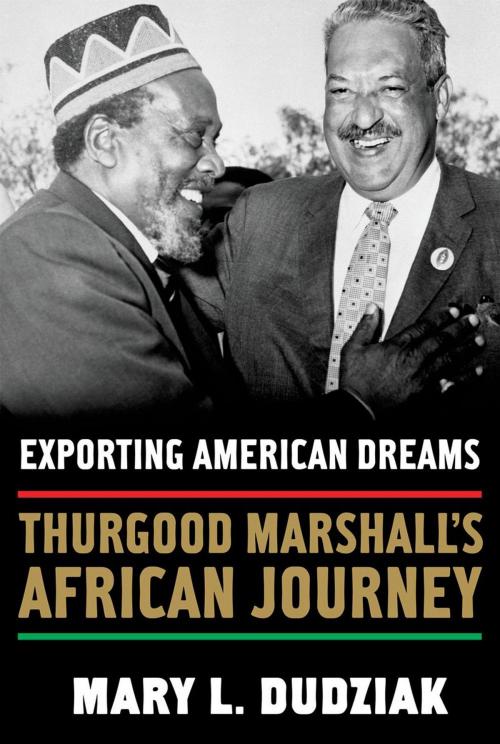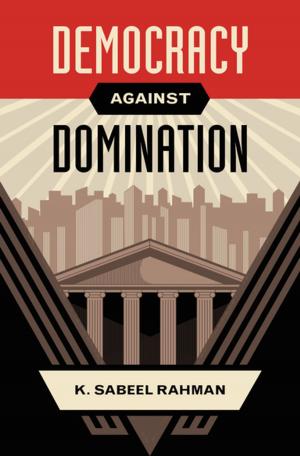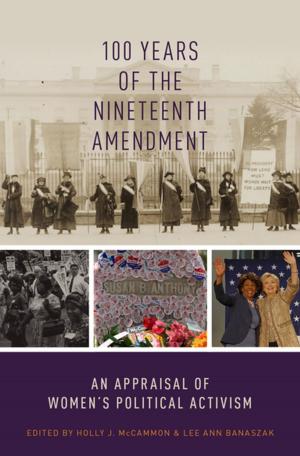Exporting American Dreams
Thurgood Marshall's African Journey
Nonfiction, Reference & Language, Law, Legal History, History, Africa, Modern, 20th Century| Author: | Mary L. Dudziak | ISBN: | 9780199839957 |
| Publisher: | Oxford University Press | Publication: | July 2, 2008 |
| Imprint: | Oxford University Press | Language: | English |
| Author: | Mary L. Dudziak |
| ISBN: | 9780199839957 |
| Publisher: | Oxford University Press |
| Publication: | July 2, 2008 |
| Imprint: | Oxford University Press |
| Language: | English |
Thurgood Marshall became a living icon of civil rights when he argued Brown v. Board of Education before the Supreme Court in 1954. Six years later, he was at a crossroads. A rising generation of activists were making sit-ins and demonstrations rather than lawsuits the hallmark of the civil rights movement. What role, he wondered, could he now play? When in 1960 Kenyan independence leaders asked him to help write their constitution, Marshall threw himself into their cause. Here was a new arena in which law might serve as the tool with which to forge a just society. In Exporting American Dreams , Mary Dudziak recounts with poignancy and power the untold story of Marshall's journey to Africa. African Americans were enslaved when the U.S. constitution was written. In Kenya, Marshall could become something that had not existed in his own country: a black man helping to found a nation. He became friends with Kenyan leaders Tom Mboya and Jomo Kenyatta, serving as advisor to the Kenyans, who needed to demonstrate to Great Britain and to the world that they would treat minority races (whites and Asians) fairly once Africans took power. He crafted a bill of rights, aiding constitutional negotiations that helped enable peaceful regime change, rather than violent resistance. Marshall's involvement with Kenya's foundation affirmed his faith in law, while also forcing him to understand how the struggle for justice could be compromised by the imperatives of sovereignty. Marshall's beliefs were most sorely tested later in the decade when he became a Supreme Court Justice, even as American cities erupted in flames and civil rights progress stalled. Kenya's first attempt at democracy faltered, but Marshall's African journey remained a cherished memory of a time and a place when all things seemed possible.
Thurgood Marshall became a living icon of civil rights when he argued Brown v. Board of Education before the Supreme Court in 1954. Six years later, he was at a crossroads. A rising generation of activists were making sit-ins and demonstrations rather than lawsuits the hallmark of the civil rights movement. What role, he wondered, could he now play? When in 1960 Kenyan independence leaders asked him to help write their constitution, Marshall threw himself into their cause. Here was a new arena in which law might serve as the tool with which to forge a just society. In Exporting American Dreams , Mary Dudziak recounts with poignancy and power the untold story of Marshall's journey to Africa. African Americans were enslaved when the U.S. constitution was written. In Kenya, Marshall could become something that had not existed in his own country: a black man helping to found a nation. He became friends with Kenyan leaders Tom Mboya and Jomo Kenyatta, serving as advisor to the Kenyans, who needed to demonstrate to Great Britain and to the world that they would treat minority races (whites and Asians) fairly once Africans took power. He crafted a bill of rights, aiding constitutional negotiations that helped enable peaceful regime change, rather than violent resistance. Marshall's involvement with Kenya's foundation affirmed his faith in law, while also forcing him to understand how the struggle for justice could be compromised by the imperatives of sovereignty. Marshall's beliefs were most sorely tested later in the decade when he became a Supreme Court Justice, even as American cities erupted in flames and civil rights progress stalled. Kenya's first attempt at democracy faltered, but Marshall's African journey remained a cherished memory of a time and a place when all things seemed possible.















